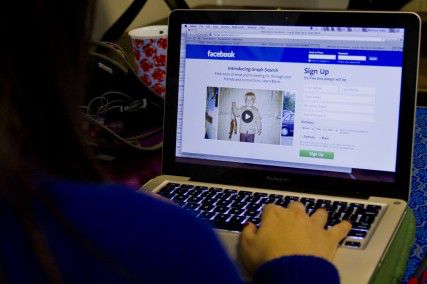
Envy, the leading cause of frustration among Facebook users, according to a new survey, may be the result of users intentionally seeking attention on the social networking site, Boston University students said.
Social scientists at the Humboldt University in Berlin and Darmstadt’s Technical University in Darmstadt, Germany determined jealousy may be the leading social cause of the frustration surrounding Facebook usage in their study, which will be presented at a Leipzig, Germany conference on business and computer science in February.
Katherine Haroldson, a College of Fine Arts freshman, said she thinks relying on the Internet for social interaction will most often lead to disappointment.
“They have higher expectations about themselves and about others and that will lead to you being let down by your Facebook friends,” she said. “I can see why people would be more depressed because of Facebook.”
Haroldson said spending time with friends in real life is what makes people happy and is not the same as getting to know people on the Internet.
“Facebook is a way of keeping mementos on places you have been, things you have done and people you have seen through pictures and posts,” Haroldson said. “I guess it’s easy to have the lack of social interaction if you are always on Facebook because you are essentially living in the past.”
The report surveyed more than 580 individuals and listed eight negative emotional outcomes emerging from the study’s final dataset, including boredom, anger, frustration, sadness, loneliness and tiredness.
Facebook incited at least one negative emotional outcome in 36.9 percent of those surveyed about their most recent Facebook usage, according to the study.
Conversely, 43.8 percent of respondents reported at least one positive emotional outcome directly related to using Facebook.
Positive emotional outcomes stemming from usage of the social networking site included joy, satisfaction, feeling informed, excitement and relaxation, the study stated.
When asked why others reported feeling frustration after using Facebook, 29.6 percent of those polled responded by citing envy as a social cause.
“According to our findings, passive following triggers invidious emotions, with users mainly envying happiness of others, the way others spend their vacations and socialize,” the study stated. “The spread and ubiquitous presence of envy on SNSs [social networking sites] is shown to undermine users’ life satisfaction — a major contribution of study.”
The nature of Facebook and the impersonal connections shared between its users may be to blame for users’ frustration and subsequent envy, according to the study.
“Most studies consistently find a positive link between active communication or general Facebook activity and such desirable outcomes as life satisfaction, social capital and emotional support,” the study stated.
Mark Blackwell, a College of Arts and Sciences freshman, said users often use the social networking site for positive reinforcement, which may not always work.
“The study makes sense because people go on social media to make themselves feel better, and often that is not what happens,” Blackwell said. “They think everyone is going to tell them they are attractive or interesting … They get upset when that’s not the response they get.”
Allie Orlando, a College of Communication sophomore, said she thinks Facebook users often seek “likes” and comments by making posts that will garner attention.
“Whether it’s on their status or pictures, they [users] look for more likes constantly,” Orlando said. “Sometimes people just want someone to talk to.”
Mai Cao, a School of Management freshman, said she is indifferent to what others post on Facebook, but understands the jealousy that can stem from seeing others make posts about their social lives.
“There are some people who really get crazy with how many likes people get,” Cao said. “They then post really weird, things, pictures and odd comments — personally I don’t think it’s a good way to go about it.”
Cao said users subconsciously look to Facebook for attention from their friends.
CAS sophomore Langston Curtis said people often log on to Facebook to look at others’ posts and to have others look at their posts.
“Every status update you make you want people to comment on it — you want people to comment on your pictures,” he said. “It [Facebook] gives people an opportunity to be jealous of things they otherwise wouldn’t be.”















































































































